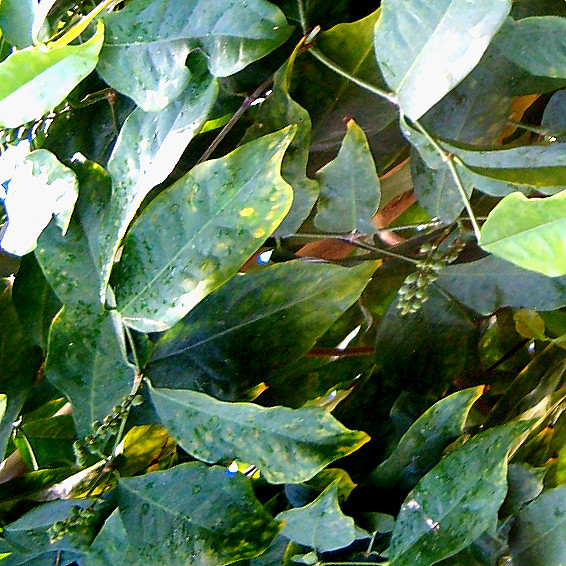- 您的话题内容不能为空。
- 作者帖子
- 28 3 月, 2025 7:45 下午 #611522

Ukazi leaf, scientifically known as Gnetum africanum, holds a cherished position in the cultural landscape of West Africa, particularly in Nigeria. Its significance extends beyond the culinary realm, deeply interwoven with traditional medicinal practices passed down through generations.
The culinary and medicinal applications of ukazi leaf in traditional practices highlight its versatility and importance in the daily lives and healthcare beliefs of the people. From flavoring beloved dishes to serving as a natural remedy for various ailments,
Ukazi leaf embodies a rich heritage of both sustenance and healing. Let’s explore the diverse ways this remarkable leaf is utilized.
1. A Staple Ingredient In Regional Cuisine
In the culinary heartlands of Nigeria, Ukazi leaf is a celebrated ingredient, lending its slightly bitter and resinous flavor to a variety of traditional dishes. It is perhaps most famous for its starring role in Edikaikong soup, a rich and flavorful vegetable soup considered a delicacy.
Ukazi leaf is also a key component of Afang soup, another popular and nutritious soup. Beyond these iconic dishes, the leaf finds its way into stews, sauces, and other local preparations, adding a unique depth of flavor and nutritional value to everyday meals. Its presence in these culinary traditions underscores its importance as a staple food source.
2. Traditional Uses For Managing Anemia
One of the most widely recognized traditional medicinal uses of Ukazi leaf is in the management of anemia, a condition characterized by a deficiency of red blood cells.
The leaf is believed to help boost blood production due to its iron content. In traditional practices, the leaves are often prepared in various ways, such as being consumed raw, cooked in soups, or used to make herbal concoctions, specifically to address symptoms of anemia like fatigue and weakness. This application highlights the deep-rooted belief in the leaf’s ability to replenish blood levels.
3. Applications During Pregnancy And Childbirth
Ukazi leaf also holds significance in traditional practices related to pregnancy and childbirth. It is often given to pregnant women, particularly in the later stages, with the belief that it can ease labor and aid in postpartum recovery.
Some traditional healers recommend it for strengthening the mother and promoting the production of breast milk after childbirth. While scientific evidence to fully support these uses is limited, the prevalence of this practice underscores the cultural belief in the leaf’s beneficial properties for maternal health.
4. Use In Addressing Coughs And Respiratory Issues
Traditionally, Ukazi leaf has been employed to alleviate coughs and other respiratory ailments. Preparations involving the leaf, such as infusions or decoctions, are sometimes used as remedies to soothe sore throats, reduce coughing, and ease breathing difficulties.
The belief in its efficacy for respiratory issues suggests the presence of compounds within the leaf that may have soothing or expectorant properties, although further research is needed to validate these traditional applications.
5. Other Traditional Medicinal Applications
Beyond the more commonly cited uses, Ukazi leaf is also employed in traditional medicine for a variety of other ailments. These include its use as a general tonic for weakness, as a remedy for certain skin conditions, and sometimes even in the management of diabetes.
These applications, while perhaps less widely documented, reflect the breadth of traditional knowledge surrounding the therapeutic potential of Ukazi leaf. The diverse range of ailments it is used to address speaks to its perceived value as a natural medicine within these communities.
In conclusion, the culinary and medicinal applications of ukazi leaf in traditional practices reveal a plant deeply embedded in the cultural fabric of West Africa. From its indispensable role in flavorful regional cuisine to its traditional use in addressing health concerns like anemia, pregnancy-related issues, and respiratory problems, Ukazi leaf demonstrates its versatility and importance.
While modern science continues to explore the phytochemical properties of this remarkable leaf, its enduring presence in traditional practices underscores its value as both a source of nourishment and a natural remedy, passed down through generations.
Read Also: Ukazi leaf: A Nutritional Powerhouse for overall Well-Being
- 作者帖子
- 哎呀,回复话题必需登录。

